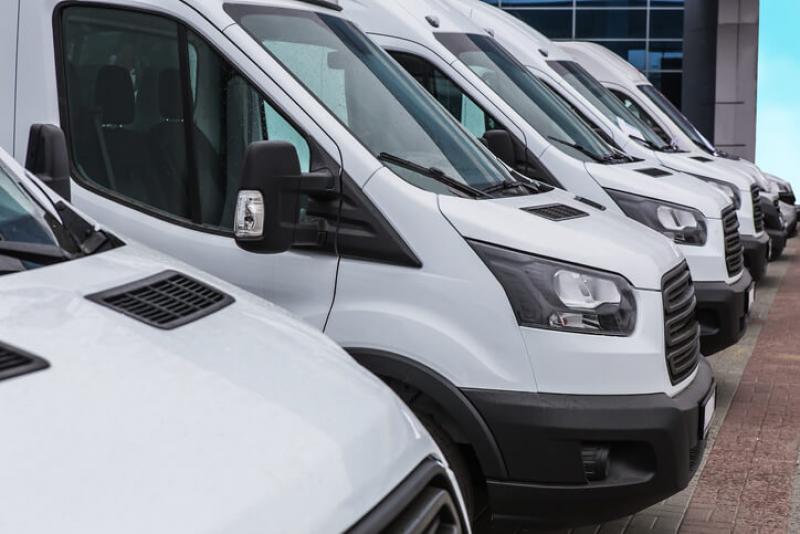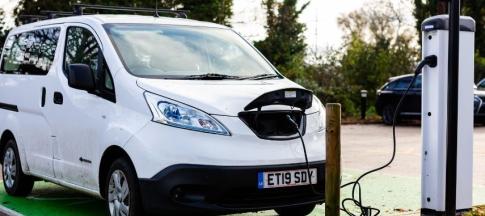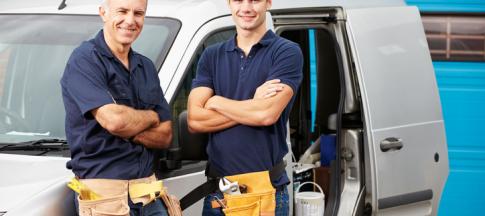
Ready to sell your van? Whether it’s time to upgrade or you’re packing in van life for good, our handy guide is here to help.
We’ll explain what pitfalls to look out for and how to get the best price for your van.
What do I need to sell my van?
There are a few things you need to have before you put your van up for sale.
V5C
The V5C is a document that proves ownership of your van.
After you’ve sold your van, you’ll need to give the buyer Section 6 and 10 of your V5C. They can then use that to get their own full V5C in their name.
If you don’t have it to hand, request a new one from the DVLA before you list your van for sale. They’ll send it to you in the mail.
Don’t forget to tell the DVLA after you’ve sold your van, so they know someone else owns it now.
Extra proof of ownership
Along with your V5C, you should bring proof of your identity and address to confirm your details.
Extra evidence is useful in showing the buyer you are who you say you are, and you can be trusted!
Valid MOT
Make sure your van still has a valid MOT certificate before you sell it. They last for a year, which is why all vehicles need a new MOT yearly.
Without a valid one, your van can’t be driven. It could also be off-putting to potential buyers.
Don’t forget, they can easily check your van’s MOT history online with the reg plate, so there’s no point in hiding anything!
Service history
A service history lets your buyer see what work has been done to your van in the past.
That’s important, as they need to know what’s new, what’s old and what to keep an eye on.
Owner manual
The owner manual has everything the buyer needs to know about the van, like:
- maximum load
- tyre size
- warning light meanings
You can technically sell your van without the owner manual if you’ve lost it. But, you might have to settle for a slightly lower price.
Records of any outstanding finance
When cars or vans are bought on finance, that finance passes over to the next buyer when it’s sold.
A lot of buyers want something called a HPI (Hire Purchase Investigation) check before closing on a sale. This costs around £10 and can easily be done online.
This confirms whether there is or isn’t any outstanding finance left to pay on the van.
You can ask the buyer to run the check themselves, or you can do it before putting it up for sale.
Spare keys
If you have spare keys for your van, you should include them in the overall sale.
If you don’t have a spare, you can either:
- get one made before you put your van up for sale
- make it clear in the sale description that there isn’t a spare
Without a spare, the buyer might offer a lower price.
How much is my van worth?
Don’t make a wild guess about how much your van is worth. You might end up listing it for way too much and get no interest – or you might sell it for way too little and lose out.
A lot of vehicle sale websites will give you a price estimate for your van after you pop in the make, model, mileage, year and so on. It’s a quick way to see roughly what your van is worth.
If you want something a little more specific, Autotrader offers free valuations for vehicles online.
You can also take your van to a garage to have it valued more thoroughly, but this might cost you a fee.
Don’t forget to have a look at what other people with the same van and a similar mileage are selling theirs for.
Where’s the best place to sell my van?
Nowadays, there are plenty of options for where you can sell your van. So, what’s the best choice for you?
Private sale
A lot of people tend to go the private route, listing their van themselves online.
You can list your van for sale online on platforms like Autotrader and Cazoo, and the process is pretty easy.
You can also try Facebook Marketplace and Gumtree but be wary of scams and unreliable buyers – we'll talk a little more about that later!
Selling to a dealership
Dealerships are always looking for cars and vans to buy, and you might be in for a good deal selling yours in this way.
Trading your van in
If you’re looking for another van and haven’t found the one for you yet, you might want to trade your van in at a dealership instead of just selling it.
This means you’re swapping your van at a dealership for another one. You’ll pay the difference between the cost of your old one and what the new one you want is worth.
For example, say your new van is worth £15,000 and your current one is worth £10,000. You’d only pay the £5,000 difference instead of the full amount because you’re trading in.
If you don’t know which van to get next, check out our handy guide to help you decide.
How to get the best price for your van
Obviously, you want the best price possible for your van. To do this, make sure you:
- fix any small issues like chipped glass or old spark plugs
- give it a good clean inside and out
- take well-lit photos with a clean background
- highlight any extras, like a spare tyre, new parts and so on
Check out the DVLA’s tips for selling your van for more advice.
Van selling scams
Like any kind of sale, selling your van comes with its share of risks. Let’s chat about what they are and how to spot them.
Fake websites
Unfortunately, online scams are more common than ever. When selling your van, make sure you only list it on trusted, safe websites.
Malicious websites can fake the sale of your van and charge you selling fees or steal your personal information like your email and payment info.
Some popular trusted vehicle sale websites include:
- Autotrader
- Carwow
- Cazoo
- Motorway
Phony buyers
While there are lots of reputable sites you can use, that doesn’t mean scammers won’t still try to take advantage of them.
We know you’ll be excited when you start to see messages coming in, but it’s important to be cautious.
Not everyone is genuine, and some might be out to steal your personal info or buy your van for a super low price.
In the worst-case scenario, a phony buyer might be planning on stealing your van when you meet for the sale.
Dodgy dealerships
Just because a dealership has its own physical shop doesn’t mean you’re always guaranteed a safe sale.
Some dealerships rely on persuasion or tricks to pressure you into selling for a lower price.
If you feel like you’re being pushed into something, walk away and take time to think things over.
How to avoid scams when selling your van
To keep yourself and your van safe when selling it, make sure you:
research any websites you might list it on for sale
- avoid giving interested buyers any sensitive information, like your home address or pictures of the V5C before the sale
- don’t meet any interested buyers on your own
- only meet interested buyers in safe public places
- don't be pressured by extremely low offers – stay close to your listing price!


